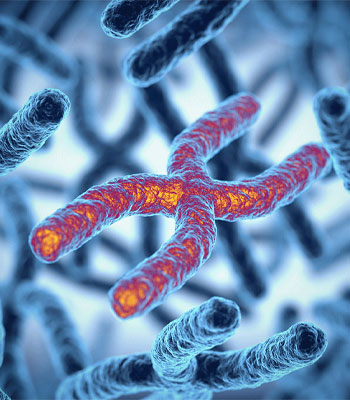PGD
- Home
- Services
- PGD
What is PGD?
Preimplantation Genetic Diagnosis (PGD) represents a breakthrough in reproductive medicine, allowing genetic screening of embryos before implantation during IVF treatment. This advanced technique helps identify chromosomal abnormalities and genetic disorders, increasing chances of healthy pregnancies.
How PGD Works: The Essential Process
The PGD procedure follows these critical steps:
- Standard IVF process creates multiple embryos
- Embryologists extract cells from 3-5 day old embryos
- Genetic material undergoes comprehensive analysis
- Only embryos without genetic abnormalities are selected
- Selected embryos transferred to the uterus
Key Benefits of PGD Treatment
Patients choose PGD for several advantages:
- Reduces risk of passing genetic disorders to offspring
- Lowers miscarriage rates by selecting viable embryos
- Increases IVF success rates through embryo selection
- Helps prevent chromosomal conditions like Down syndrome
- Provides family balancing options through sex selection

Ferti Care IVF Centre: Excellence in Reproductive Care
Ferti Care IVF Centre has established itself as a leader in comprehensive fertility solutions, offering cutting-edge PGD services alongside conventional IVF treatments. The center combines advanced technology with compassionate care to address diverse reproductive challenges.
Core Services at Ferti Care IVF Centre
The clinic provides a complete range of fertility treatments:
- Standard IVF procedures
- ICSI (Intracytoplasmic Sperm Injection)
- PGD and PGS (Genetic Screening)
- Frozen Embryo Transfer
- Fertility Preservation Services
- Donor Egg/Sperm Programs
PGD Centres in Vijayawada: Finding Quality Care
Vijayawada has emerged as a hub for advanced fertility treatments with several centers offering PGD services. When selecting a PGD center, patients should consider:
Essential Selection Criteria
- Laboratory accreditation and certification
- Experience with diverse genetic conditions
- Success rates for PGD cycles
- Technology and equipment quality
- Counseling and support services
Best Fertility Hospital in Vijayawada: Key Features
The top fertility centers in Vijayawada distinguish themselves through:
Clinical Excellence Markers
- Comprehensive diagnostic capabilities
- Multidisciplinary specialist teams
- Personalized treatment protocols
- Transparent pricing and ethical practices
- Patient-centric approach to care
Understanding PGD Costs and Considerations
PGD treatment involves several cost factors:
Primary Cost Components
- Initial consultation and genetic counseling
- IVF procedure costs
- Embryo biopsy charges
- Genetic testing fees
- Medication expenses
- Embryo freezing/storage (if applicable)
Who Should Consider PGD Treatment?
PGD may be recommended for:
- Couples with family history of genetic disorders
- Parents who are carriers of genetic conditions
- Women experiencing recurrent pregnancy loss
- Patients with previous IVF failures
- Older women undergoing fertility treatment
- Couples seeking family balancing
PGD Success Rates: What to Expect
Success rates for PGD cycles vary based on:
- Maternal age and ovarian reserve
- Specific genetic condition being screened
- Number and quality of embryos available
- Clinic expertise and laboratory standards
Ethical Considerations in PGD
PGD raises important ethical questions including:
- Appropriate uses of embryo selection
- Handling of embryos with genetic abnormalities
- Implications of sex selection
- Access and affordability concerns
Preparing for PGD Treatment
Patients should prepare by:
- Undergoing complete fertility evaluation
- Receiving genetic counseling
- Understanding all treatment steps
- Planning for multiple IVF cycles if needed
- Considering emotional and psychological support
Post-PGD Process and Follow-up
After PGD procedure, patients typically:
- Undergo embryo transfer during optimal window
- Receive pregnancy testing after appropriate interval
- Continue with standard prenatal care if successful
- Consider additional testing like CVS or amniocentesis
- May preserve remaining healthy embryos
Alternative Options to PGD
Other approaches include:
- Prenatal diagnostic testing
- Preconception genetic screening
- Donor egg/sperm options
- Adoption pathways
Recent Advances in PGD Technology
Innovations enhancing PGD include:
- Next-generation sequencing techniques
- Non-invasive embryo testing methods
- Expanded genetic condition panels
- Improved embryo freezing techniques
Choosing Between PGD and PGS
Key differences patients should understand:
- PGD tests for specific known genetic conditions
- PGS screens for general chromosomal abnormalities
- Selection depends on patient history and needs
- Some clinics recommend combined approaches
Patient Experiences with PGD
Common patient reports include:
- High satisfaction with healthy outcomes
- Appreciation for reduced uncertainty
- Challenges with emotional aspects of embryo selection
- Need for strong support systems during process
Insurance and Financial Aspects
Important financial considerations:
- Most insurance plans don't cover PGD fully
- Some coverage possible for medical indications
- Financing options available at many clinics
- Package pricing may reduce overall costs
Frequently Asked Questions About PGD
Is PGD painful?
The embryo biopsy occurs at microscopic level and doesn't cause patient discomfort. The IVF process follows standard protocols.
How accurate is PGD testing?
Modern PGD techniques boast over 98% accuracy for tested conditions, though no test is 100% infallible.
Can PGD guarantee a healthy baby?
While PGD significantly reduces risks, it cannot eliminate all potential birth defects or health issues.
How many embryos are typically tested?
This varies by case, but clinics usually test all viable embryos from an IVF cycle, typically 3-8 for most patients.
What happens to embryos with abnormalities?
Patients decide disposition of affected embryos based on clinic policies and personal beliefs, with options including donation for research or respectful disposal.
